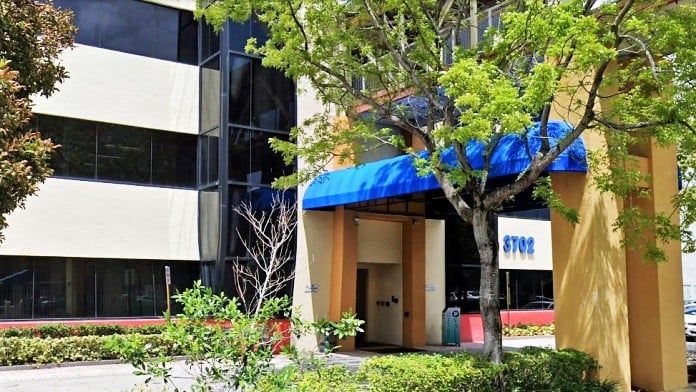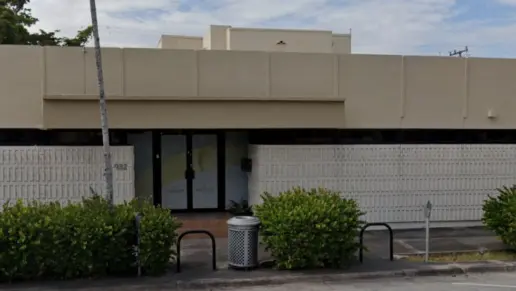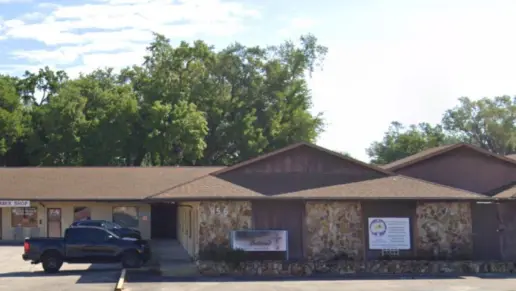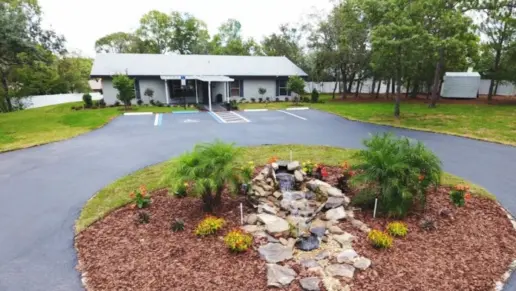About Hollywood VA Clinic
Hollywood VA Clinic offers low cost primary care, mental health treatment and social support services. These services are provided in a conducive and welcoming outpatient environment. The facility serves veterans in Hollywood, Florida, and nearby areas. I like that they accept various commercial and public insurance like Medicaid, Medicare and TRICARE. Self pay options are also available via mail, in person or online. You may even receive help to fund your treatment via the VA financial hardship assistance if eligible.
The clinic benefits from the city’s tranquil beach atmosphere and cultural charm. You can enjoy the calming environment and take advantage of nearby parks and scenic spots. This provides a peaceful backdrop for recovery from common behavioral conditions like PTSD, substance use disorders (SUD) and depression.
If you’re struggling with any of these conditions, this facility might just be where you need to seek help. They provide same-day help, and you may qualify for care even without enrolling in VA health care. Most past clients agree that they offer quality recovery services that deliver the best outcomes. Their staff are described as friendly, knowledgeable and professional. You can benefit from their highly confidential and personalized outpatient behavioral therapy.
They primarily offer consultation, intake evaluation and therapeutic support. The latter is provided in a group and individual format with the aim of helping you uncover the root causes of your behavioral challenges. They use evidence based models to promote positive change in attitude and behavioral patterns that help you break the cycle of unhealthy behavior like substance use. You’ll be equipped with healthy coping skills that inspire a sober lifestyle and prevent relapse.
They may prescribe meds that will help you manage withdrawal and support lasting recovery if you’re dealing with opioid use or alcoholism. The facility can help you treat co-occurring disorders as well. This is when someone suffers from both SUD and mental issues at the same time. An integrated treatment approach involving addiction therapy and psychiatric care is used to tackle this condition. They’ll refer you to another VA clinic or to a non-VA clinic within the community that offers high-intensity treatment if you have a severe SUD or mental health crisis.
Social support is integral to quality healthcare. From help with finances or housing to medical care, this facility delivers supportive services that streamline your lasting recovery efforts. These services also include home health services, legal and transportation assistance and community living. Other helpful services they offer include same-day appointments, telehealth visits and walk-in express care for urgent medical needs.
Latest Reviews
Rehab Score
Gallery

Location
Other Forms of Payment
Private insurance refers to any kind of healthcare coverage that isn't from the state or federal government. This includes individual and family plans offered by an employer or purchased from the Insurance Marketplace. Every plan will have different requirements and out of pocket costs so be sure to get the full details before you start treatment.
Self-pay involves paying for treatment out of your own pocket. You can use savings or credit, get a personal loan, or receive help from family and friends to fund your treatment. If you don't have insurance or your insurance plan doesn't cover a specific program, self-pay can help ensure you still get the care you need.
Medicare is a federal program that provides health insurance for those 65 and older. It also serves people under 65 with chronic and disabling health challenges. To use Medicare for addiction treatment you need to find a program that accepts Medicare and is in network with your plan. Out of pocket costs and preauthorization requirements vary, so always check with your provider.
Military members, veterans, and eligible dependents have access to specific insurance programs that help them get the care they need. TRICARE and VA insurance can help you access low cost or no cost addiction and mental health treatment. Programs that accept military insurance often have targeted treatment focused on the unique challenges military members, veterans, and their families face.
Financial aid can take many forms. Centers may have grants or scholarships available to clients who meet eligibility requirements. Programs that receive SAMHSA grants may have financial aid available for those who need treatment as well. Grants and scholarships can help you pai for treatment without having to repay.
Addiction Treatments
Levels of Care
Treatments
Many of those suffering from addiction also suffer from mental or emotional illnesses like schizophrenia, bipolar disorder, depression, or anxiety disorders. Rehab and other substance abuse facilities treating those with a dual diagnosis or co-occurring disorder administer psychiatric treatment to address the person's mental health issue in addition to drug and alcohol rehabilitation.
Mental health rehabs focus on helping individuals recover from mental illnesses like bipolar disorder, clinical depression, anxiety disorders, schizophrenia, and more. Mental health professionals at these facilities are trained to understand and treat mental health issues, both in individual and group settings.
Programs




Clinical Services
Cognitive Behavioral Therapy (CBT) is a therapy modality that focuses on the relationship between one's thoughts, feelings, and behaviors. It is used to establish and allow for healthy responses to thoughts and feelings (instead of unhealthy responses, like using drugs or alcohol). CBT has been proven effective for recovering addicts of all kinds, and is used to strengthen a patient's own self-awareness and ability to self-regulate. CBT allows individuals to monitor their own emotional state, become more adept at communicating with others, and manage stress without needing to engage in substance abuse.
Whether a marriage or other committed relationship, an intimate partnership is one of the most important aspects of a person's life. Drug and alcohol addiction affects both members of a couple in deep and meaningful ways, as does rehab and recovery. Couples therapy and other couples-focused treatment programs are significant parts of exploring triggers of addiction, as well as learning how to build healthy patterns to support ongoing sobriety.
Research clearly demonstrates that recovery is far more successful and sustainable when loved ones like family members participate in rehab and substance abuse treatment. Genetic factors may be at play when it comes to drug and alcohol addiction, as well as mental health issues. Family dynamics often play a critical role in addiction triggers, and if properly educated, family members can be a strong source of support when it comes to rehabilitation.
Group therapy is any therapeutic work that happens in a group (not one-on-one). There are a number of different group therapy modalities, including support groups, experiential therapy, psycho-education, and more. Group therapy involves treatment as well as processing interaction between group members.
In individual therapy, a patient meets one-on-one with a trained psychologist or counselor. Therapy is a pivotal part of effective substance abuse treatment, as it often covers root causes of addiction, including challenges faced by the patient in their social, family, and work/school life.
Nicotine Replacement Therapy (NRT) is a way of getting nicotine into the bloodstream without smoking. It uses products that supply low doses of nicotine to help people stop smoking. The goal of therapy is to cut down on cravings for nicotine and ease the symptoms of nicotine withdrawal.
Trauma therapy addresses traumatic incidents from a client's past that are likely affecting their present-day experience. Trauma is often one of the primary triggers and potential causes of addiction, and can stem from child sexual abuse, domestic violence, having a parent with a mental illness, losing one or both parents at a young age, teenage or adult sexual assault, or any number of other factors. The purpose of trauma therapy is to allow a patient to process trauma and move through and past it, with the help of trained and compassionate mental health professionals.
Amenities
-
Residential Setting
-
Private Setting
Accreditations

The Joint Commission, formerly known as JCAHO, is a nonprofit organization that accredits rehab organizations and programs. Founded in 1951, the Joint Commision's mission is to improve the quality of patient care and demonstrating the quality of patient care.
Joint Commission Accreditation: Yes
Accreditation Number: 4506
Contact Information
3702 Washington St.
Suite 201
Hollywood, FL 33021


